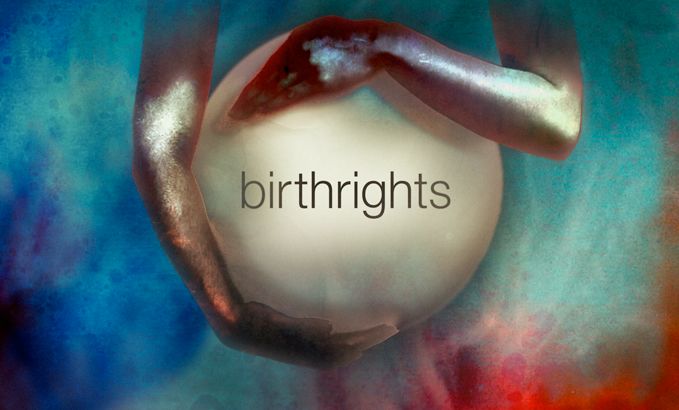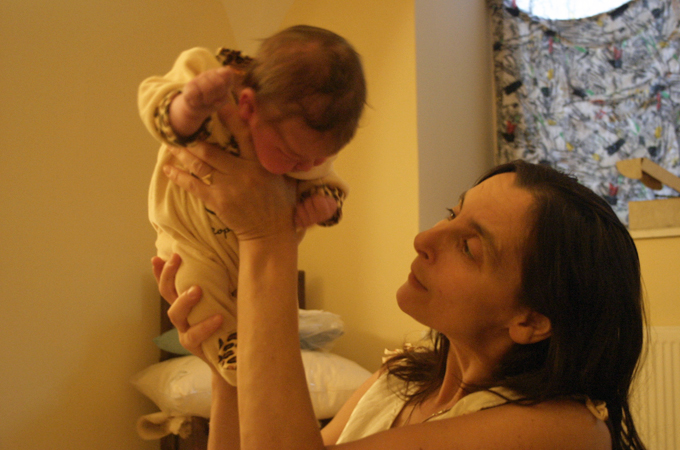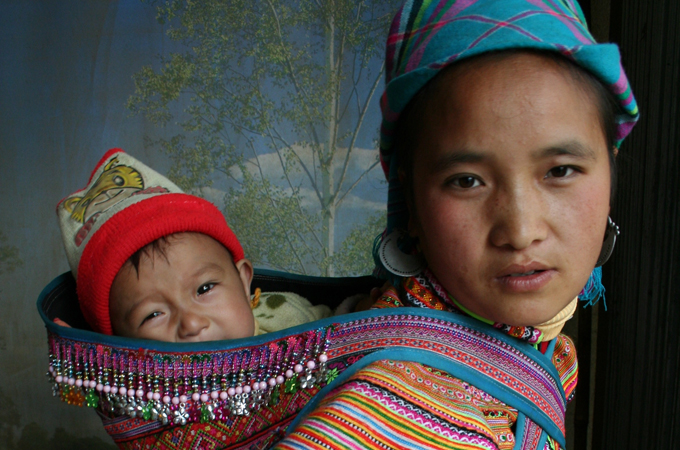
Birthrights: Coming soon
A series exploring maternal health and the power, politics and poverty that impacts it around the world.
 |
Maternal health is about more than just mothers and babies. Across the globe the very business of delivering life into the world is determined by power, politics and, all too frequently, poverty.
There may be a lack of facilities or too much medical intervention; women may be struggling to deliver their babies healthily or trying to control families through the termination of unwanted pregnancies; and the challenges could be rural remoteness or an urban culture dominated by media messages. Whatever the specifics, maternal health and the way women give birth is a global issue that affects us all.
This series takes us on a journey around the world – to Ethiopia, Hungary, Vietnam, the US, Guatemala and elsewhere. We hear a wide range of stories from women in vastly different circumstances, exploring their roles as mothers, the challenges they face around birth and labour as well as some of the ways they are trying to improve maternal health in their communities.
| Fistula Hospital – Healing and Hope |
Filmmaker: Lara Akeju/Mandrake Films
Across the developing world, millions of women are condemned to live a shadowy, half-existence because of Obstetric Fistula – a debilitating medical condition borne out of poverty that has largely disappeared in the West. It is caused by prolonged labour that, without suitable medical intervention, tears a hole in the woman’s birth canal, allowing body wastes to leak. Without treatment, the woman is often isolated from her family and community.
Our first three Birthrights films are based in and around the Addis Ababa Fistula Hospital in Ethiopia, which treats around 1,300 women a year. Three intimate documentaries introduce us to some of the women being treated there as well as the dedicated medical staff. These personal stories, both tragic and full of warmth and humanity, reveal the women behind the condition as well as reflecting on its intimate connection to poverty and underdevelopment.
Fistula Hospital – Healing and Hope can be seen from Monday, March 7, at the following times GMT: Monday: 2230; Tuesday: 0930; Wednesday: 0330; Thursday: 1630; Friday: 2230.
| Fistula Hospital – Reaching Out |
Filmmaker: Lara Akeju/Mandrake Films
The second film takes us beyond the hospital itself to see the work being done in its rural clinics. We follow some of the outreach workers as well as one woman on her long and emotional journey home after treatment.
Fistula Hospital – Reaching Out can be seen from Monday, March 14, at the following times GMT: Monday: 2230; Tuesday: 0930; Wednesday: 0330; Thursday: 1630.
| Fistula Hospital – Facing the Future |
Filmmaker: Lara Akeju/Mandrake Films
The third film looks towards the future and follows some of the hospital’s midwives as they work with communities to prevent Fistula.
Fistula Hospital – Facing the Future can be seen from Monday, March 21, at the following times GMT: Monday: 2230; Tuesday: 0930; Wednesday: 0330; Thursday: 1630.
| Hard Labour in Hungary |
|
Filmmaker: Julie Heathcote Being a homebirth midwife in Hungary is a dangerous occupation, as the case of gynaecologist Agnes Gereb shows. Despite having delivered several thousand babies, Gereb is currently on trial. This film examines the growing criminalisation of homebirth midwives and explores the underlying issues behind Hungary’s controversial conservative policies: Are they driven by money, control of women by the medical profession – or both? Those against home births point to high survival rates for women delivering in hospital, but behind these figures lie very high levels of medical intervention, C-section rates and increasingly medicalised labour. Hard Labour can be seen from Monday, March 28, at the following times GMT: Monday: 2230; Tuesday: 0930; Wednesday: 0330; Thursday: 1630. |
| Caught in the Cradle |
Producer: Rebecca Kaufman
More children are having children in the US than in any other developed nation in the world – and central Texas has the highest teenage pregnancy rates in the US.
In this film we meet some of the young teenage mothers who are fighting to change their fate. In the face of politicians who will only endorse abstinence, as well as policy makers looking for creative and sustainable solutions, we hear the realities of two young women whose condition may mean they are forever caught in the cradle.
Caught in the Cradle can be seen from Monday, April 4, at the following times GMT: Monday: 2230; Tuesday: 0930; Wednesday: 0330; Thursday: 1630.
| Right to Life Guatemala |
Filmmaker: Greg Brosnan
Today, illegal abortions are the leading cause of death among young women in Latin America. Whether they are performed in major cities or in the isolated countryside, these ‘back room’ abortions are leaving thousands of young women dead each year.
Guatemala has the highest fertility rate among women and yet it remains the poorest country in the region where women can ill afford large families. Unwanted pregnancies, coupled with the forces of tradition and politics, leave few options for these families. Through the work of an activist and the medical team she leads, this film explores the questions of family planning, which many see as the right to life.
Right to Life Guatemala can be seen from Monday, April 11, at the following times GMT: Monday: 2230; Tuesday: 0930; Wednesday: 0330; Thursday: 1630.
| The Risk of Choice |
Producer: Betsy Kulman
In the US today, the single most frequent surgical procedure is the C-section, the ‘caesarian’. Where it is an established practice, the World Health Organization suggests it should not exceed 15 per cent of all deliveries. In the US, the current figure is close to 30 per cent. The growing debate about C-section delivery questions its safety, necessity and viability.
Here we meet both sides – those who say it is a reasonable choice and those who argue that it is unnecessary, can be life threatening and is frequently done out of corporate expediency rather than medical need. How do women on the cusp of having a child work through these options? The blessings of choice can be a curse of options.
The Risk of Choice can be seen from Monday, April 18, at the following times GMT: Monday: 2230; Tuesday: 0930; Wednesday: 0330; Thursday: 1630.
| The Mountain Midwives of Vietnam |
|
Filmmaker: Nick Ahlmark and Nicole Precel/Storytime Films The infant and maternal mortality rates in the mountainous regions of northern Vietnam are 10 times higher than the national average. In this observational film we follow a Hmong ethnic minority midwife who has been trained to provide maternal care to her community in the isolated Chi Ca commune. We observe her journeys into the harsh mountain terrain, her work tending to pregnant women and her efforts to change the Hmong’s cultural attitudes towards maternal health against a backdrop of poverty and remoteness. The Mountain Midwives of Vietnam can be seen from Monday, April 25, at the following times GMT: Monday: 2230; Tuesday: 0930; Wednesday: 0330; Thursday: 1630. |
| BIRTHRIGHTS: Some facts about global maternal health |
• Maternal mortality is the greatest health inequality in the world. Ninety-nine per cent of women who die in childbirth are in the developing world. Most of these deaths could be avoided if resources were invested to pay for adequate healthcare and to strengthen health systems.
• Twenty million of the estimated 210 million women who become pregnant each year experience life-threatening complications.
• Pregnancy is the biggest killer of women aged 15 to 19 in the developing world.
• Midwives save lives, yet two thirds of women in the least developed countries deliver without one.
• Girls under 15 are five times more likely to die in childbirth than women in their twenties.
• A girl growing up in Chad today has about the same chance of dying in childbirth as she has of going to secondary school.
• A 15-year-old girl in Afghanistan has a one in 11 chance of dying in pregnancy or childbirth.
• Every year, 3.6 million babies die before they are a month old.

